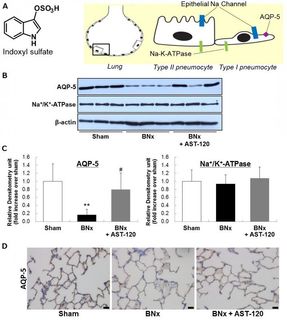AM-Pharma presents positive Phase II results for potential First-In-Class drug
Alkaline Phosphatase improved renal function, reduced length of stay in Intensive Care, and could become First-in-Class drug in multi-billion market
Advertisement
AM-Pharma B.V. announced positive results from its Phase II acute kidney injury trial with Alkaline Phosphatase. The study showed that treatment of Acute Kidney Injury (AKI) with Alkaline Phosphatase results in improved renal function and reduced length of stay in Intensive Care. No drug currently exists to treat AKI, therefore Alkaline Phosphatase could become a “first in class” product in the market. The cost of managing AKI in the US is around $10 billion per year.
The key objective of the trial was to show improved kidney function in AKI patients treated with bovine Alkaline Phosphatase. Primary efficacy parameters were; dialysis requirement, creatinine clearance and serum creatinine. The trial objective was met and the results are both statistically significant and clinically relevant. The treatment was well tolerated and there were no safety concerns.
Statistical significant improvement was also reached on important secondary endpoints. Average stay in Intensive Care was significantly shorter for patients on Alkaline Phosphatase compared to patients on placebo. Also, the need for mechanical ventilation was significantly reduced.
In this double blind, placebo controlled, prospective clinical study in 36 patients with AKI secondary to sepsis, patients received Alkaline Phosphatase intravenously for 48 hours and were followed for 28 days. The multi-centre trial was conducted at critical care units in The Netherlands and Belgium.
A composite analysis of all primary renal function efficacy parameters, creatinine clearance, serum creatinine and dialysis requirement shows statistically significant improvement (p=0.005) compared to placebo. Renal creatinine clearance improved more than twice as fast in the treated group during the first 7 days, (p<0.02) resulting in normalization of creatinine clearance for the rest of the 28 days, compared to the placebo group, where creatinine clearance remained impaired (p<0.02). There was a reduction of dialysis requirement after treatment with Alkaline Phosphatase compared to placebo (means: 10 hours vs 53 hours, p=0.08). Treatment with Alkaline Phosphatase resulted in shorter stay in ICU (11 days vs 25 days, p<0.02) and in reduced need for mechanical ventilation (3.9 days vs 6.0 days, p<0.03). Patients in the group treated with Alkaline Phosphatase were comparable at baseline to patients in the placebo group.
These results confirm the results of an earlier Phase II trial with bovine Alkaline Phosphatase in a similar patient population. The results of this first trial were published in Critical Care Medicine journal in February 2009.






















































